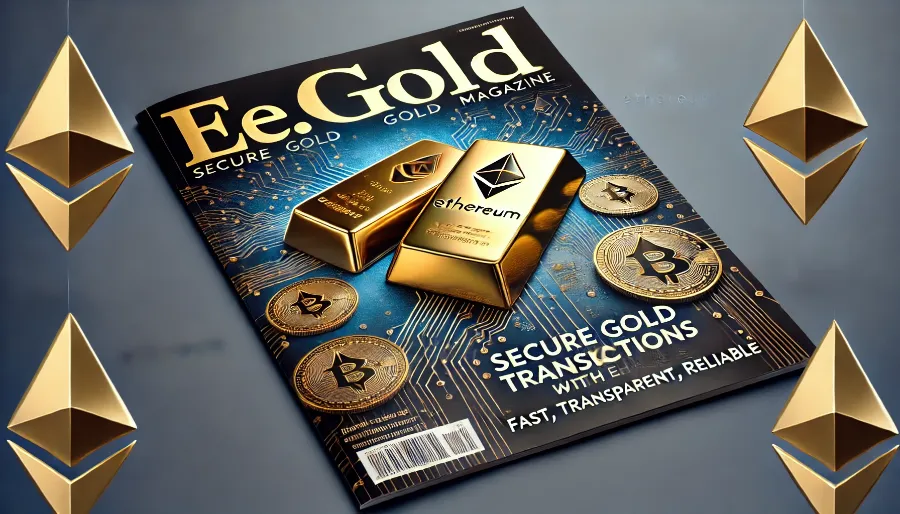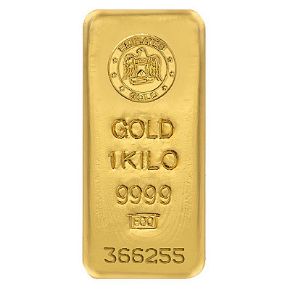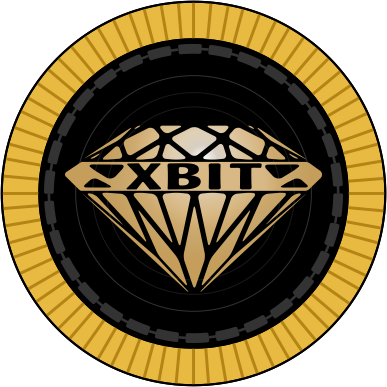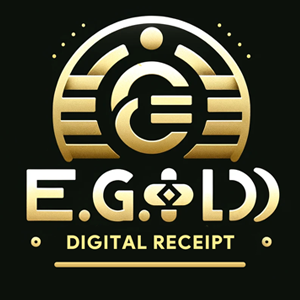
Table of Contents
- Why Ethereum (ETH) is the Perfect Choice for Gold Transactions
- The Benefits of Using Ethereum for Secure Gold Purchases
- Exploring Ethereum’s Blockchain for Gold Trading
- How to Find Reliable Vendors Accepting Ethereum for Gold
- A Step-by-Step Guide to Secure Gold Transactions with Ethereum
- Comparing Physical Gold vs. Tokenized Gold Purchases with Ethereum
- Transaction Fees and Costs for Ethereum-Based Gold Purchases
- How Ethereum Smart Contracts Improve Security in Gold Transactions
- Ethereum’s Role in Decentralized Gold Trading Platforms
- Storage Solutions After Purchasing Gold with Ethereum
- Legal and Regulatory Considerations for Ethereum Gold Transactions
- Ethereum vs. Bitcoin: Which is Better for Gold Purchases?
- Real-World Examples of Gold Transactions Using Ethereum
- Overcoming Challenges in Using Ethereum for Gold Trading
- The Future of Ethereum-Driven Gold Markets in 2025
- Frequently Asked Questions About Secure Gold Transactions with Ethereum
Why Ethereum (ETH) is the Perfect Choice for Gold Transactions
Ethereum is widely recognized for its ability to handle secure, fast, and efficient transactions. Its blockchain’s decentralized nature ensures transparency, offering a tamper-proof system that records every transaction. This makes it a perfect fit for gold trading, where trust and security are paramount. Ethereum’s smart contracts allow for automated processes, eliminating the need for intermediaries and enhancing efficiency in gold purchases.
The Benefits of Using Ethereum for Secure Gold Purchases
Using Ethereum for gold transactions provides several advantages. Its transaction speeds are significantly faster than traditional payment systems, ensuring rapid settlement. Ethereum’s low fees make it a cost-effective choice, especially for high-value purchases like gold bullion. Blockchain technology ensures that every transaction is secure and immutable, minimizing the risk of fraud. The global accessibility of Ethereum enables users to trade with vendors worldwide without the hassle of currency exchange.
Exploring Ethereum’s Blockchain for Gold Trading
Ethereum’s blockchain is a decentralized ledger that records all transactions transparently and immutably. This means that every gold purchase using Ethereum is permanently logged, providing proof of authenticity and ownership. The blockchain’s cryptographic protocols prevent unauthorized changes, making it one of the most secure technologies available for gold trading. For tokenized gold, Ethereum’s blockchain ensures traceability, linking digital tokens to physical assets stored in secure vaults.
How to Find Reliable Vendors Accepting Ethereum for Gold
Several reputable platforms accept Ethereum for gold purchases. Vendors like BullionStar, Bitgild, and Vaultoro have integrated Ethereum payments to meet the demands of tech-savvy investors. When choosing a vendor, prioritize those with positive reviews, strong security measures, and clear policies for delivery or storage. It’s also important to ensure the vendor complies with relevant regulations and provides a seamless user experience.
A Step-by-Step Guide to Secure Gold Transactions with Ethereum
Start by setting up a secure Ethereum wallet to store your cryptocurrency. Research and select a reputable gold vendor that accepts Ethereum. Browse the vendor’s product catalog to choose the type of gold you want, whether physical bullion or tokenized assets. During checkout, select Ethereum as your payment method and transfer the required amount to the vendor’s wallet address. Verify the transaction on the Ethereum blockchain, and confirm delivery or secure storage arrangements for your gold.
Comparing Physical Gold vs. Tokenized Gold Purchases with Ethereum
Physical gold offers tangible ownership, providing long-term security and a hedge against economic uncertainty. However, it requires secure storage and insurance. Tokenized gold, on the other hand, is a digital representation of physical gold stored in vaults. It is easier to trade, transfer, and store, making it ideal for investors seeking flexibility. Ethereum supports both types of transactions, giving users the freedom to choose based on their preferences and investment goals.
Transaction Fees and Costs for Ethereum-Based Gold Purchases
Ethereum transactions generally have low fees, but they can vary based on network congestion. Additional costs may include vendor markups for gold products, shipping and insurance fees for physical gold, or service charges for tokenized gold. Comparing costs across vendors can help you make an informed decision and maximize the value of your investment.
How Ethereum Smart Contracts Improve Security in Gold Transactions
Ethereum’s smart contracts are self-executing agreements that automate and secure gold transactions. These contracts ensure that funds are transferred only when predefined conditions, such as the delivery of gold, are met. This eliminates the risk of disputes and enhances trust between buyers and sellers. For tokenized gold, smart contracts can automate processes like ownership transfers or dividend distributions, streamlining the trading experience.
Ethereum’s Role in Decentralized Gold Trading Platforms
Ethereum is the backbone of many decentralized gold exchanges, where users can trade tokenized gold directly with one another. These platforms eliminate intermediaries, reducing transaction fees and increasing transparency. By using Ethereum, decentralized exchanges provide a secure and efficient way to buy, sell, or trade gold, appealing to a new generation of investors who value autonomy and innovation.
Storage Solutions After Purchasing Gold with Ethereum
Once you’ve purchased gold with Ethereum, it’s essential to choose the right storage solution. Physical gold can be stored in a personal safe, a bank vault, or a secure storage facility provided by the vendor. Tokenized gold, on the other hand, is stored in a digital wallet, offering easy access and transferability. Consider factors like security, insurance, and accessibility when deciding where to store your gold.
Legal and Regulatory Considerations for Ethereum Gold Transactions
Cryptocurrency regulations vary by region, and understanding the legal framework is crucial for compliance. Many vendors require users to complete know-your-customer (KYC) and anti-money laundering (AML) protocols before transacting. Familiarize yourself with tax implications and reporting requirements to ensure a smooth and compliant gold purchase experience.
Ethereum vs. Bitcoin: Which is Better for Gold Purchases?
While Bitcoin is widely accepted, Ethereum offers several advantages for gold transactions. Ethereum’s lower fees and faster transaction speeds make it a more efficient option. Additionally, its smart contract capabilities provide automation and enhanced security, making it particularly well-suited for complex gold transactions.
Real-World Examples of Gold Transactions Using Ethereum
An investor in Europe used Ethereum to purchase tokenized gold from a blockchain-based platform, benefiting from the cryptocurrency’s speed and cost-effectiveness. Another example involves a tech entrepreneur in Asia who used Ethereum’s smart contracts to automate recurring gold purchases, streamlining the investment process. These real-life cases highlight Ethereum’s growing role in gold trading.
Overcoming Challenges in Using Ethereum for Gold Trading
Using Ethereum for gold transactions has its challenges, including price volatility and potential network congestion. High gas fees during peak times can increase transaction costs, making it essential to plan purchases strategically. Ensuring the accuracy of wallet addresses and transaction amounts is also critical, as errors are irreversible.
The Future of Ethereum-Driven Gold Markets in 2025
The integration of Ethereum into the gold market is expected to grow as blockchain technology evolves. Innovations like decentralized gold exchanges, advanced smart contracts, and improved scalability will enhance Ethereum’s utility in gold trading. Partnerships between Ethereum-based platforms and traditional gold vendors will further expand its adoption, creating new opportunities for investors.
FAQs About Secure Gold Transactions with Ethereum
Why is Ethereum suitable for gold transactions?
Ethereum’s fast transactions, low fees, and smart contract capabilities make it ideal for secure gold trading.Which platforms accept Ethereum for gold purchases?
Vendors like BullionStar, Bitgild, and Vaultoro accept Ethereum for buying physical and tokenized gold.What is tokenized gold?
Tokenized gold is a digital representation of physical gold stored in secure vaults, allowing for easy trading and storage.Are Ethereum transactions for gold purchases secure?
Yes, Ethereum’s blockchain ensures transparency and security, and smart contracts enhance transaction reliability.How do smart contracts work in gold trading?
Smart contracts automate gold transactions, ensuring funds are transferred only when specific conditions are met.What are the storage options for gold bought with Ethereum?
Options include personal safes, bank vaults, vendor-provided storage, or digital wallets for tokenized gold.Are there additional fees when using Ethereum for gold transactions?
Yes, fees may include Ethereum gas fees, vendor markups, and shipping or storage costs.Can Ethereum be used for tokenized gold purchases?
Absolutely, Ethereum is widely used to buy tokenized gold on blockchain-based platforms.How does Ethereum compare to Bitcoin for gold purchases?
Ethereum offers lower fees, faster transactions, and smart contract capabilities, making it more versatile for gold trading.What is the future of Ethereum in the gold market?
Ethereum’s role will continue to grow with advancements in blockchain technology and partnerships with gold vendors.
Combining Ethereum and Gold for a Balanced Investment Strategy
Ethereum and gold offer a unique combination for a diversified portfolio, blending stability with innovation. Gold, as a time-tested asset, provides a hedge against inflation and economic downturns. Ethereum, on the other hand, represents the growth potential of blockchain technology and decentralized finance.
By using Ethereum to purchase gold, investors can integrate the best of both worlds. During periods of market volatility, gold offers a safe haven, while Ethereum’s capabilities in decentralized platforms and tokenization open up modern investment opportunities. This synergy makes Ethereum and gold a powerful duo for those looking to balance risk and reward.
Decentralized Finance (DeFi) and Gold: Ethereum’s Role
Ethereum’s blockchain serves as the backbone for decentralized finance (DeFi), which is reshaping how investors interact with traditional assets like gold. Tokenized gold on Ethereum-based DeFi platforms enables users to trade, stake, or use their gold as collateral for loans.
This functionality expands the utility of gold as an asset. For instance, investors can purchase tokenized gold with Ethereum, store it in a digital wallet, and then use it in DeFi applications to earn interest or access liquidity. These innovations make Ethereum-driven gold transactions more versatile and appealing to tech-savvy investors.
Real-Time Pricing and Market Efficiency
Ethereum’s ability to handle real-time transactions aligns perfectly with the dynamic nature of the gold market. Platforms that accept Ethereum often provide live pricing for gold, allowing buyers to lock in favorable rates instantly. The blockchain’s speed ensures that transactions are completed quickly, reducing the risk of price fluctuations impacting the purchase.
For sellers, Ethereum’s blockchain streamlines the settlement process, enabling them to access funds faster compared to traditional payment systems. This efficiency benefits both buyers and vendors, fostering greater trust and adoption in the market.
Innovations in Tokenized Gold with Ethereum
Tokenized gold represents a revolutionary way to own and trade gold, and Ethereum is at the forefront of this innovation. Each token represents a specific amount of physical gold stored in secure vaults, offering the stability of gold with the flexibility of digital assets.
Using Ethereum for tokenized gold transactions enables fractional ownership, making gold investments accessible to a broader audience. Smart contracts on Ethereum further enhance the security and transparency of tokenized gold trades, automating processes like ownership transfers and dividend distributions.
Partnerships Between Gold Vendors and Ethereum Platforms
As Ethereum’s adoption grows, more traditional gold vendors are partnering with Ethereum-based platforms to expand their offerings. These collaborations allow vendors to tap into a growing market of cryptocurrency users while providing customers with additional payment options.
For investors, these partnerships create a seamless experience, combining the reliability of established gold vendors with the efficiency and innovation of Ethereum. This trend is expected to continue, driving further integration between the cryptocurrency and precious metals markets.
Environmental Considerations of Ethereum in Gold Transactions
Ethereum’s transition to Ethereum 2.0 has significantly reduced its energy consumption, making it a more environmentally friendly blockchain. This aligns with the values of environmentally conscious investors, particularly those who view gold as a sustainable asset.
By using Ethereum for gold transactions, buyers and vendors can reduce their carbon footprint compared to traditional financial systems or proof-of-work blockchains like Bitcoin. This sustainability adds another layer of appeal to Ethereum-driven gold trading.
Preparing for the Future of Ethereum in the Gold Market
The future of Ethereum in the gold market is bright, with continuous advancements in blockchain technology paving the way for new opportunities. Decentralized gold exchanges, improved scalability, and enhanced smart contract functionality will make Ethereum an even more integral part of the gold trading ecosystem.
As regulations surrounding cryptocurrency become clearer, more investors and vendors will feel confident using Ethereum for gold transactions. These developments will further cement Ethereum’s role in bridging traditional and digital finance, offering a seamless and secure way to buy, sell, and store gold.
Call to Action
Explore the potential of Ethereum for secure gold transactions and experience the benefits of blockchain-driven innovation. Whether you’re purchasing physical gold or venturing into tokenized assets, Ethereum provides the tools to make your investments efficient, transparent, and future-ready. By embracing Ethereum, you’re not just investing in gold—you’re investing in the evolution of finance itself.
NOTE
This Content is the copyrighted content of EE.GOLD. All rights are reserved. You are welcome to share or use our content only by including direct links to our website. Any other form of reproduction, distribution, or use without proper attribution is strictly prohibited.
This Content is intended solely for educational purposes. The information provided does not constitute financial or investment advice.
Please note that Digital Storage Receipt, Secure Storage Solutions, and Physical Gold Sales are the only services offered by EE.GOLD.
We strictly adhere to government regulations and are firmly against all illegal financial or investment activities globally.
For further inquiries, feel free to contact us through our official channels.










.png)

